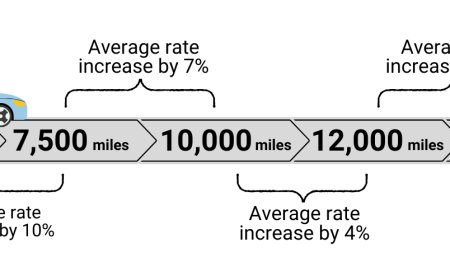How to Spot Fake Share Market Advisory Services and Protect Your Capital
As retail participation in the Indian stock market continues to rise, so does the number of self-proclaimed market experts offering tips, calls, and promises of massive returns. From Telegram channels to WhatsApp broadcasts and Instagram reels, it's easy to stumble upon people claiming to be share market advisors. But not all of them are genuine.

As retail participation in the Indian stock market continues to rise, so does the number of self-proclaimed market experts offering tips, calls, and promises of massive returns. From Telegram channels to WhatsApp broadcasts and Instagram reels, it's easy to stumble upon people claiming to be share market advisors. But not all of them are genuine.
In fact, fake share market advisory services are one of the most dangerous traps for new investors. They can drain your capital, destroy your confidence, and even lead to legal trouble if you unknowingly participate in manipulative schemes.
This article will guide you through practical ways to identify good share market advisory services and avoid fake advisory services, so you can protect your investments and make informed decisions.
Why Fake Advisory Services Are a Growing Threat
Fake advisors prey on two emotions: greed and fear.
They promise:
-
Guaranteed returns in a short time
-
Jackpot intraday calls
-
Free tips if you sign up quickly
-
Private access to “insider” stock tips
-
No SEBI registration but “10 years of experience”
And many fall for it—especially new or emotionally vulnerable investors who want quick success.
1. No SEBI Registration Number
In India, it is mandatory for anyone offering financial or investment advice for a fee to be registered with the Securities and Exchange Board of India (SEBI).
How to check it:
-
Ask for their SEBI Registration Number
-
Visit the official SEBI website
-
Search for the advisor or firm’s name in the Intermediary Directory
If they avoid sharing this, make excuses, or send you edited images—walk away.
2. Guaranteed Profit Claims
No one—absolutely no one—can guarantee profits in the stock market. If someone says:
-
“Make ₹50,000 per week”
-
“100% success ratio”
-
“Sure shot intraday tip”
…it’s a scam. The market is unpredictable, and even professional advisors experience losses.
SEBI regulations prohibit advisors from using such misleading language. Genuine advisors speak in probabilities, not guarantees.
3. Flashy Screenshots and Fake Testimonials
Many fake advisors use edited screenshots of profits, charts with hindsight trades, and fabricated client reviews to build trust.
These tactics include:
-
Sharing “before and after” trade images with perfect entries
-
Posting messages like “Thank you sir, I made ₹30,000 today!”
-
Using fake follower counts and likes
Don’t rely on visual proof. Ask for real, auditable performance records.
4. No Official Website or Office Address
Reputable advisory firms usually have:
-
A functioning website with terms and disclosures
-
A support team or contact number
-
Clear information about their services and plans
-
Mention of SEBI compliance and refund policies
Scammers usually operate via mobile apps, Telegram, or WhatsApp only—without any traceable office or identity.
5. Pressure Tactics and Limited-Time Offers
“If you don’t subscribe today, we will close registration.”
This is a classic high-pressure sales trick. Fake advisors often urge you to:
-
Pay immediately via UPI
-
Choose “lifetime plans” without trial periods
-
Join private groups promising limited seat access
Real advisors never rush clients. They let you evaluate the service with full information and trial options.
6. No Discussion of Risk or Strategy
Genuine advisory services will:
-
Discuss risk tolerance
-
Share the logic behind recommendations
-
Provide stop-loss and capital allocation guidance
-
Ask about your trading experience
Fake advisors, on the other hand, throw out random calls without:
-
Entry strategy
-
Exit strategy
-
Stop-loss
-
Risk management
Their goal is to impress, not educate.
7. They Ask for Direct Profit Sharing or Login Details
Some scammers go a step further by:
-
Asking for your trading app login
-
Requesting access to your Demat account
-
Offering to trade on your behalf
-
Demanding a share of your profits
This is illegal. SEBI-registered advisors are not permitted to handle your trades or ask for a cut from your profits.
8. They Offer “Insider Tips” or Unusual Penny Stocks
Be especially cautious of:
-
Small-cap or penny stock tips
-
“Upcoming merger” or “secret government deal” stocks
-
Tips related to illiquid stocks with no volume
These are often pump-and-dump schemes where fake advisors buy stocks at low prices, create hype, and sell them once gullible clients drive prices up.
How to Protect Yourself from Fake Advisors
Always verify SEBI registration
Never take tips or calls from unregistered individuals or groups.
Use reputable platforms
Stick to established advisory firms with strong online presence and transparent records.
Don’t share sensitive information
Never provide your trading passwords or financial details to anyone online.
Start with a small plan
Avoid committing to yearly or “lifetime” plans without trying the service first.
Report suspicious activity
If you suspect fraud, report it to SEBI at scores.gov.in or use the SEBI toll-free helpline.
Final Thoughts
The lure of quick profits can be dangerous, especially when it leads you to unregulated and unethical advisory services. In a country like India—where financial literacy is still growing—fake advisors thrive on confusion, greed, and misplaced trust.
But once you understand the warning signs, you’re less likely to fall into their trap.
Real wealth in the stock market isn’t built overnight. It requires:
-
Patience
-
Knowledge
-
Risk management
-
And yes, the right kind of guidance
So choose your share market advisory service wisely. Make sure they’re registered, experienced, and ethical—because the first step in successful investing is protecting your capital.






































